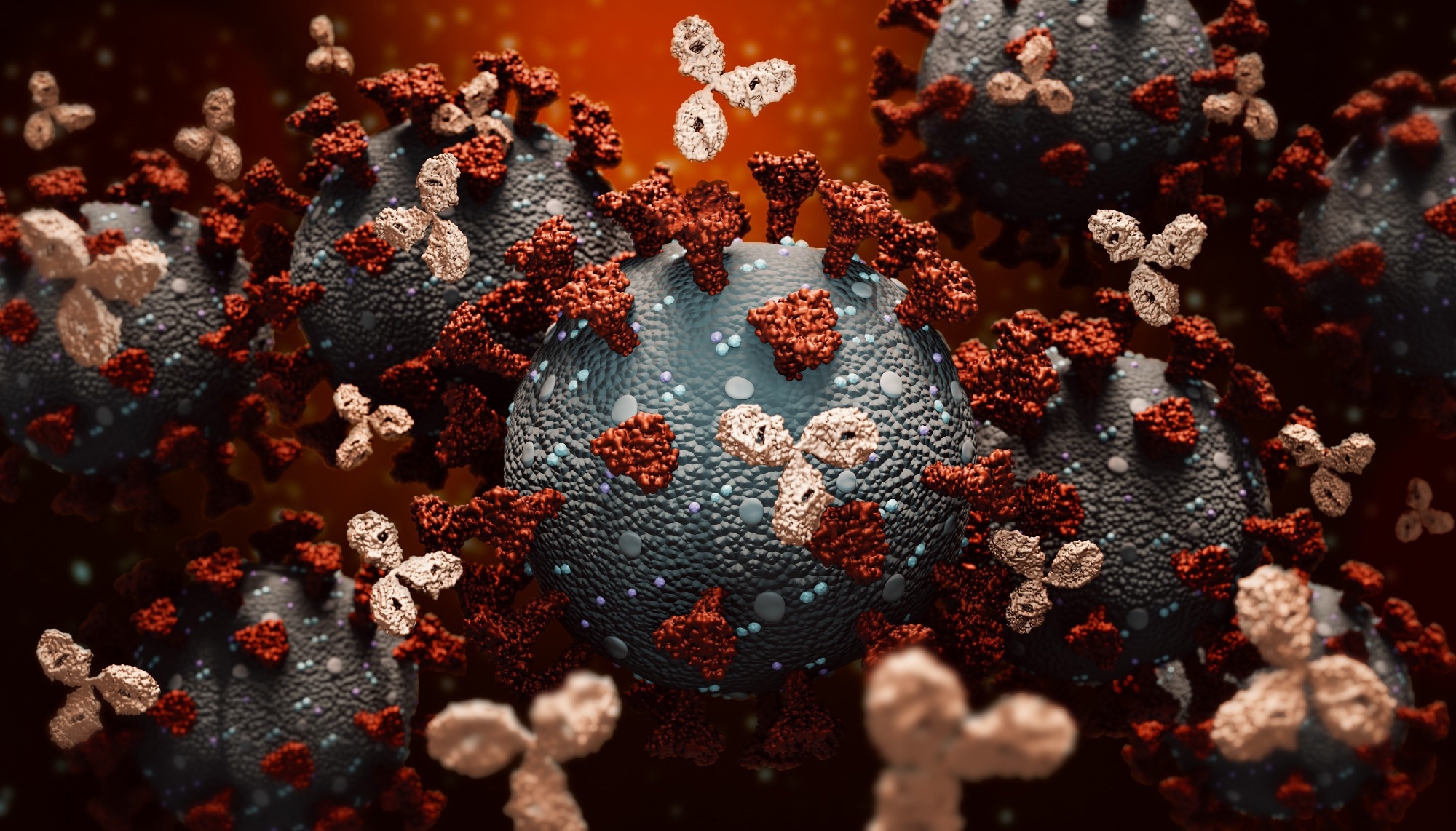These mAbs neutralized multiple sarbecoviruses and all severe acute respiratory syndrome coronavirus 2 (SARS-CoV-2) variants, including Omicron sublineages BA.1 to BA.5, XBB, BQ.1, and BQ.1.1.
 Study: Broadly neutralizing antibodies against sarbecoviruses generated by immunization of macaques with an AS03-adjuvanted COVID-19 vaccine. Image Credit: MattL_Images/Shutterstock.com
Study: Broadly neutralizing antibodies against sarbecoviruses generated by immunization of macaques with an AS03-adjuvanted COVID-19 vaccine. Image Credit: MattL_Images/Shutterstock.com
Background
Sarbecoviruses have caused three outbreaks among humans in the past two decades, of which the SARS-CoV-2 pandemic was the worst. It claimed over 6.8 million lives by 2023 despite widespread population-level immunity.
Omicron variant and its sublineages most severely challenged the current COVID-19 vaccination strategies, thanks to their exceptional immune-evasion potential. Studies showed that mRNA monovalent vaccines had efficacy below 50% during the recent BA.4/5 waves, which a fourth booster shot could transiently and minimally improve.
Moreover, all available mAb therapies failed to combat Omicron subvariants, highlighting the urgent need for next-generation vaccines and mAbs with much-higher protective breadth.
About the study
In the present study, researchers investigated the evolutionary trajectory of the memory B cell (MBC) responses in rhesus macaques vaccinated with the AS03-adjuvanted subunit vaccine over 1.5 years, using samples from a previous study that benchmarked clinically relevant adjuvants for their capacity to enhance the protective immunity of SARS-CoV-2 vaccines.
The previous study had two cohorts comprising five and six male rhesus macaques (M. Mulatta), respectively.
The former group received a prime-boost regimen of two receptor-binding domain-nanoparticle (RBD-NP) doses with the AS03 adjuvant on days zero and 21. Likewise, the six animals in the latter group received two doses of the AS03 adjuvanted HexaPro-NP vaccine.
The team measured the difference between any two groups at one-time points and different time points using a Mann-Whitney unpaired rank sum test and two-way analysis of variance (ANOVA), respectively; a two-tailed chi-square test measured the difference between different categories.
In addition, they performed a serological assessment of the 15 most potent mAbs isolated between three weeks and six months after the primary vaccination. Furthermore, the team conducted an extensive structural analysis of some of the isolated mAbs and demonstrated their efficacy in mice.
During structural analysis, they determined crystal structures of mAbs: 25F9, 20A7, and 21B6, and their mode of binding to the RBD of SARS-CoV-2 at resolutions of 3.05, 2.58, and 1.75 angstroms (Å), respectively.
Results and conclusion
The vaccines adjuvanted with AS03 provided long-lasting protection against Omicron challenge in all test animals used in this study.
The magnitude of protection was 100% after six weeks of priming and six months after the boosting. The latter indicated a rapid evolution of broad antibody repertoire encoded in the antigen-specific memory B cells (MBCs).
The authors noted that this vaccine elicited a progressive antibody evolution with greater breadth and more potency over a 12-month follow-up, and antigen-antibody complexes on dendritic cells (DCs) likely drove this phenomenon.
Nearly 4.4% of 338 mAbs isolated between 1.4 to six months following primary vaccination had good potency against SARS-CoV-2 BA.1. Seven broadly neutralizing monoclonal antibodies (bnAbs) showed potent neutralization against the ancestral SARS-CoV-2 strain, Wuhan-Hu1, with under ten ng/ml of half maximal inhibitory concentration (IC50).
They also neutralized SARS-CoV-2 variants that emerged before Omicron without any notable decline in potency.
Four mAbs, 25F9, 21B6, 20A7, and 27A12, neutralized Omicron BA.1 with IC50 values of 42, 11, six, and five ng/ml, respectively. Whereas 27A12 demonstrated a slight reduction in neutralizing activity against other Omicron sublineages, BA.2 to BA.5, XBB, BQ.1, BQ.1.1, and XBB 20A7 showed some reduced neutralizing activity against a Pangolin strain.
Yet, among all other tested mAbs, 25F9 and 20A7 showed the most potent neutralizing activity against all SARS-CoV-2 variants and multiple Omicron sublineages, which could make them promising prophylactic candidates against sarbecovirus infection.
Strikingly, 25F9 neutralized authentic clade one sarbecoviruses and provided broad protection against infection in mice, highlighting its clinical utility. Additionally, 20A7 showed good neutralizing activity against pseudotyped clade three sarbecoviruses.
As observed in several previous studies, most mAbs, including ADG20, DH1047, S2X259, 20A7, and SA55, targeted the same region in the RBD, viz., RBS-D/CR3022. While ADG20, DH1047, and S2X259 mAbs lost neutralization potency against Omicron and its sublineages, 20A7 and SA55 remained resistant to all Omicron subvariants.
Nonetheless, this finding highlighted that this RBD region with the potential to elicit broad and potent mAbs could provide insights for next-generation vaccine design.
Notably, several structural factors affect the loss or resistance of neutralization potency of mAbs, such as approaching angles towards an epitope. Similarly, dependence on specific amino acid residues in the epitope affects the binding of mAbs.